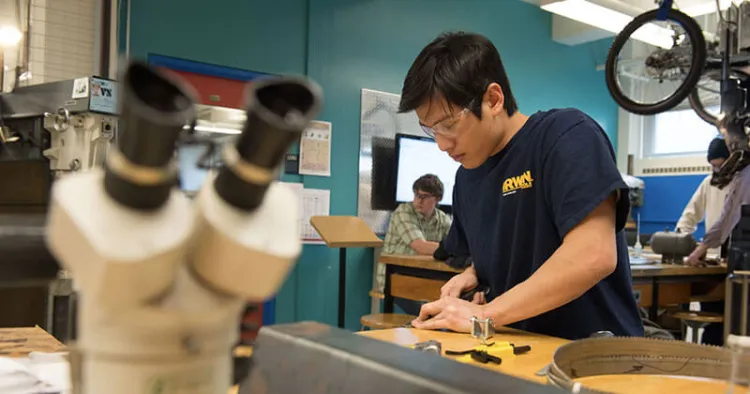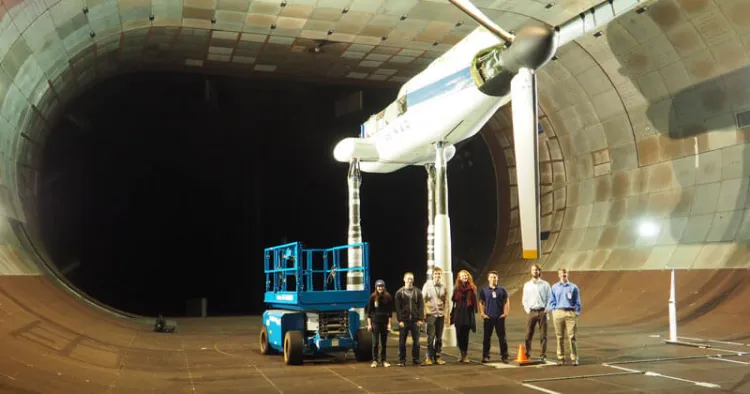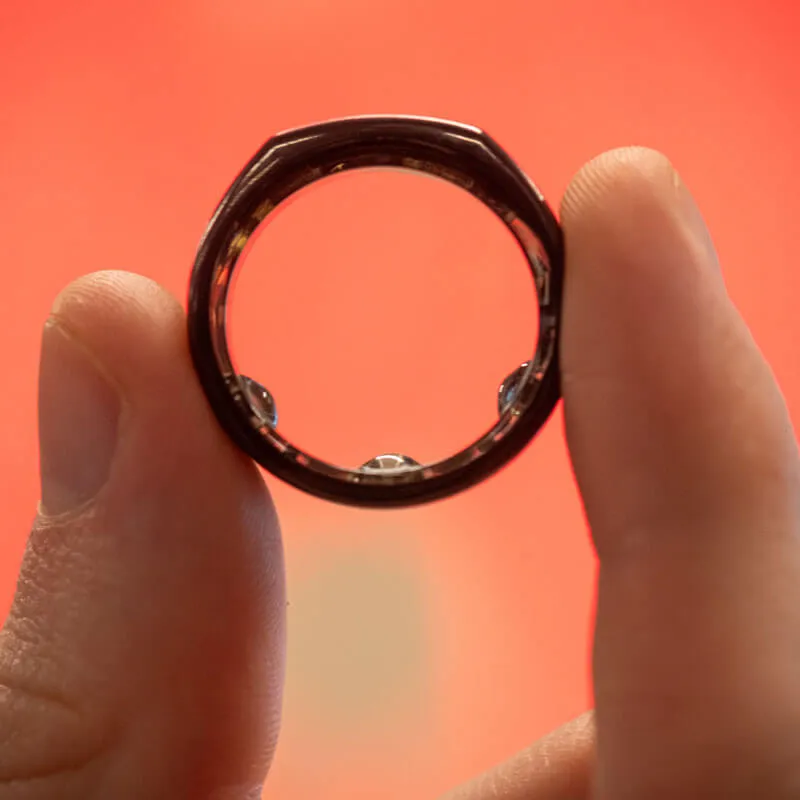At the College of Engineering and Mathematical Sciences, you’ll find opportunities to work on cutting-edge projects in areas such as nanotechnology, wearable sensors, and app development. And you’ll seamlessly bridge the disciplines, sharing space with faculty across the STEM fields to tackle the world’s problems collaboratively.
Our faculty researchers open doors to undergrads in their nationally sponsored labs. You can also pursue independent research with a faculty mentor, and apply for university grants to support your work.
Research Experience For Undergraduates (CEMS-REU)

CEMS research experience for undergraduates (REU) program promotes opportunities for students to engage in research projects in collaboration with UVM faculty members. This program provides stipends intended to incentivize undergraduate engagement in research, providing both academic year and summer REU positions. The most important quality you will bring to this position is your eagerness to learn. Our faculty do research in a variety of areas. Reach out to them to learn more about their research and opportunities to work with them through the REU program.
Richard Barrett Foundation Scholars Program

The Richard Barrett Foundation provides funding for summer research internships for engineering students in the College of Engineering and Mathematical Sciences (CEMS) in a topic broadly related to the environment. The program provides prestigious, competitive awards to outstanding undergraduate engineers who wish to pursue a specific research project under the mentorship of a faculty member. The proposed projects must fit within the general research area of the faculty advisor and must be approved prior to proposal submission.
NASA Internships Funded By Vermont Space Grant

NASA Internships are educational hands-on opportunities during which students work at a NASA research facility for the summer under the direction of a NASA scientist or engineer. During the internship participants engage in scientific or engineering research, development, and operations activities. Through these internships, participants leverage NASA's unique mission activities and mentorship to enhance and increase their professional capabilities and clarify their long-term career goals.
Finding a Faculty Mentor
UVM is what is called a “high research activity” institution. This means every tenured or tenure-track faculty member is doing research outside of what they might be teaching in their classrooms. Unfortunately, the Office of Undergraduate Research cannot maintain a database with all the opportunities available to students. But, the UVM website can act as one. If you search through the departments that you are interested in, you will find that each faculty member has a C.V., research website, or profile that will provide all the information that you could want about the research that is being done by your professors.



More Opportunities
The UVM Office of Fellowships, Opportunities and Undergraduate Research offers an array of valuable resources for all UVM students, helping to shape their intellectual development through research and scholarly engagement, and by exploring and pursuing competitive fellowships.
Office of Fellowships, Opportunities and Undergraduate Research CEMS Career Resources